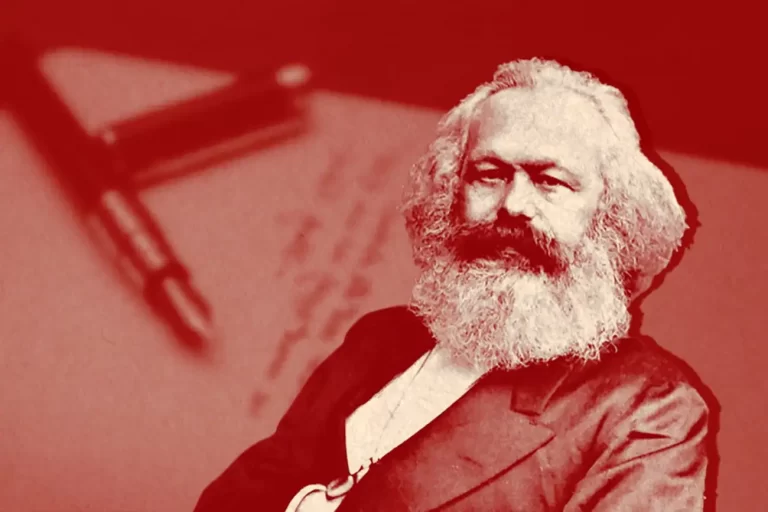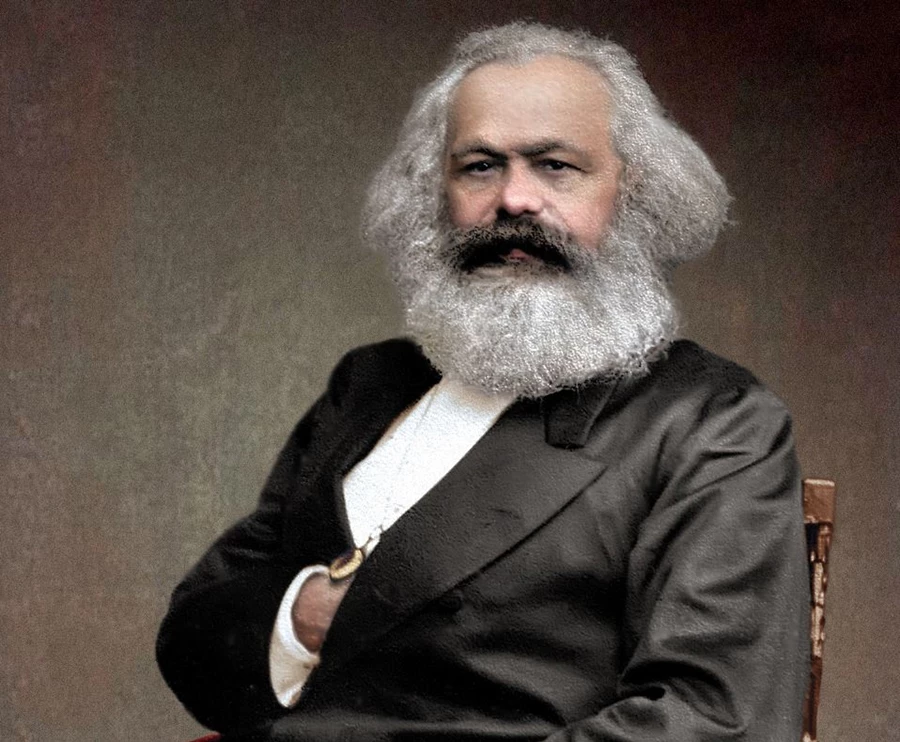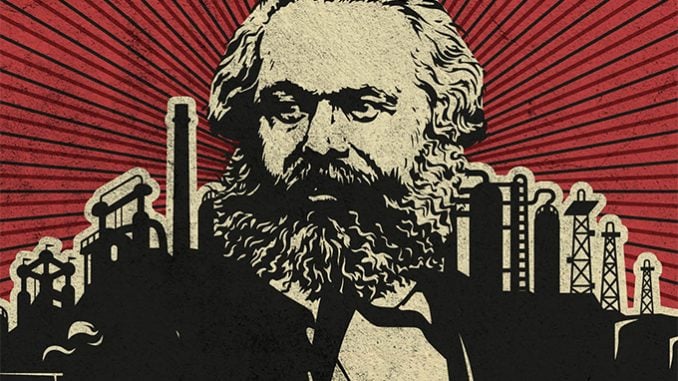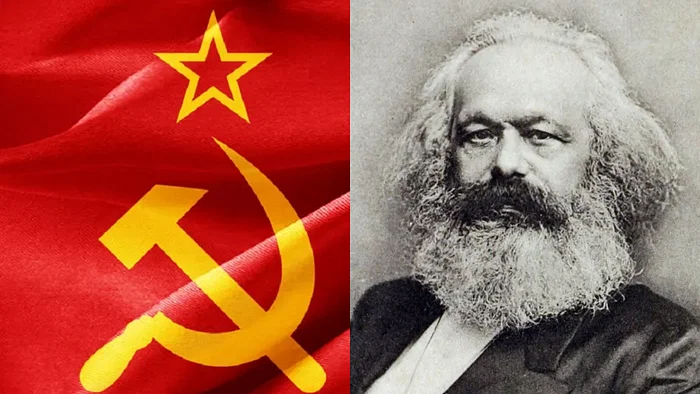
The poetic works by young Karl Marx have long been neglected in modern academic fields and studies on Marxism
Shoukat Lohar
Karl Marx was a German philosopher, economist, and socialist considered as one of the most influential figures in modern history. His ideas have shaped the course of social and political thought, and his writings continue to influence political and social movements around the world. Marx was born in Trier, Germany, in 1818 and died in London, England, in 1883. He is best known for his work on communism, including his Communist Manifesto and his masterwork Das Kapital.
Marx was a student of the philosophy of Hegel, and his work is often seen as a response to Hegelianism. In particular, Marx rejected Hegel’s idealism and turned instead to a materialist view of history.
Marx saw the world in terms of class struggle, with the capitalist class exploiting the working class. He believed that the working class would eventually rise up and overthrow the capitalist system, leading to a classless society in which the means of production were owned collectively.
Marx’s most famous work is undoubtedly the Communist Manifesto, which he co-authored with Friedrich Engels in 1848. The Communist Manifesto is a short pamphlet that outlines the basic principles of communism and calls for the overthrow of the existing social and economic order. It begins with the famous words, “A specter is haunting Europe—the specter of communism.”

In the Manifesto, Marx and Engels argue that all of human history is characterized by class struggle. They identify two primary classes—the bourgeoisie and the proletariat—and argue that the bourgeoisie exploits the proletariat.
They argue that the only way to end this exploitation is for the proletariat to seize political power and establish a dictatorship of the proletariat. This dictatorship would then work to create a classless society in which the means of production were owned collectively and wealth was distributed equally.
While the Communist Manifesto is perhaps Marx’s most famous work, it is only a small part of his overall oeuvre. His masterwork is Das Kapital, a three-volume study of the capitalist system. In Das Kapital, Marx lays out his theory of surplus value, which argues that the capitalist system is based on the exploitation of workers. He also argues that capitalism is inherently unstable and that it will eventually collapse under the weight of its own contradictions.
Marx’s theory is sometimes called dialectical materialism. This theory sees history as a series of contradictions between opposing forces, with each stage of history giving way to the next. According to Marx, the current era of capitalism is characterized by the contradiction between the bourgeoisie and the proletariat. This contradiction will eventually lead to the overthrow of the capitalist system and the establishment of communism.
Marx is often called a leftist because of his advocacy for socialism and communism.
He believed that the capitalist system was fundamentally unjust and that it needed to be replaced with a system that put the needs of workers first. He also believed that the state should play a leading role in the economy, rather than leaving everything to the free market.
Marx’s vision of a classless society was driven by his belief in the fundamental equality of all people. He believed that the capitalist system created deep divisions between people based on their class, race, and gender. He saw communism as a way of ending these divisions and creating a world in which everyone had access to the same opportunities.

Marx’s contribution to political and social thought is immeasurable. His ideas have shaped the course of world history and continue to inspire social and political movements around the world.
His emphasis on the importance of economic systems and their impact on society has been particularly influential. Marx’s theories have been used to analyze everything from the rise of multinational corporations to the causes of the global financial crisis.
In addition to his work as a philosopher and economist, Marx was also a poet. He wrote a number of poems.
Marx wrote poems in his early life and were compiled in April 1837, but first published in 1929. His poetry book was republished in 1975 by International Publishers.
The poetic works by young Karl Marx have long been neglected in modern academic fields and studies on Marxism. Normally, most scholars view these poems as love poetry which bears nothing more than adolescent impulsion and thirst for love.
However certain researchers have retorted the prejudice on Marx’s poetry and expounded the poetic theme and philosophical or even political economic significance of these early poems, believing in the continuation of romantic influence and transition on young Marx and his philosophical care revealed in these poems and thereof the political economic perspectives of the undergoing production system and social relations of capitalist society he lived in. According to them, Karl Marx has exhibited humanitarian ethos, critical thinking and aesthetic consciousness in his poems which serve as the best evidence of the origin of his poetic philosophy and political economy. In these poems, Karl Marx’s sensible intelligence paves the way for his philosophical thinking and political economic perspective in his coming research and investigation in philosophy and political economy of human society.
 Here are three of his verses:
Here are three of his verses:
Yearning – A Romance
“Why sighs your breast, why glows your gaze,
Why are your veins all burning,
As if Night weighs, as if Fate flays
Down into storm your yearning?”
“Show me the eyes, like ringing bells,
That glow in rainbows high,
Where brightness streams, where music swells,
Where stars go swimming by.
“I dreamed this dream, so troublesome,
Past all elucidating.
My head is void, my heart is numb,
My grave shall soon be waiting.”
“What dream you here, what dream you there,
What lures to distant lands?
Here booms the Tide, here Hope rides fair,
Here’s fire in True Love’s bonds.”
“Here naught rides fair, here is no fire,
But see what glimmers yonder,
I’m blinded, burning with desire,
And I would fain sink under.”
He stares aloft, his eyes shine bright,
He shakes in every limb.
His sinews swell, his heart’s alight,
His soul departs from him.
***
The Man in the Moon
See, breathed upon by starlight’s glance,
Swift up and down a-hopping,
The Man in the Moon beats out his dance,
His lively limbs a-bobbing.
Soft weeping dew of Heaven shines
Tangled in curly hair,
Then trickles down on to the plains
Till blossoms tinkle there.
And now it sparkles, sprouts apace
In flakelets gold and pale.
The flowerbells tell the earthly place
The Moonman’s grievous tale.
He waves in such a friendly way
But deep his sorrows smart.
He would be with the sinking ray,
Lean to the Sun’s full heart.
He’s tarried long, he’s listened long
To hear the rising spheres.
He pines, he yearns to be a song,
To thaw in dancing flowers.
Earth’s glade is covered with his pain
Till field and meadow ring;
Rapt with his own sweet shine, he then
Beats, reconciled, his wings.
***
Human Pride
When these stately Halls I scan
And the giant burden of these Houses,
And the stormy pilgrimage of Man
And the frenzied race that never ceases,
Pulse’s throbbing do I sense
And the giant flame of Soul so proud?
Shall the Waves then bear you hence
Into Life, into the Ocean’s flood?
Shall I then revere these forms
Heavenward soaring, proud, inviolate?
Should I yield before the Life that storms
Towards the Indeterminate?
No! You pigmy-giants so wretched,
And you ice-cold stone Monstrosity,
See how in these eyes averted
Burns the Soul’s impetuosity.
Swift eye scans the circles round,
Hastens through them all exploringly,
Yearning, as on fire, resounds,
Mocking through the vast Halls and away.
When you all go down and sink,
Fragment-world shall lie around,
Even though cold Splendor blink,
Even though grim Ruin stand its ground.
There is drawn no boundary,
No hard, wretched earth-clod bars our way,
And we sail across the sea,
And we wander countries far away.
Nothing bids to stay our going,
Nothing locks our hopes inside;
Swift away go fancies fleeing,
And the bosom’s joy and pain abide.
All those monstrous shapes so vast
Tower aloft in fearfulness,
Feeling not love’s fiery blast
That creates them out of nothingness.
No giant column soars to Heaven
In a single block, victorious;
One stone on the other meanly woven
Emulates the timid snail laborious.
But the Soul embraces all,
Is a lofty giant flame that glows,
Even in its very Fall
Dragging Suns in its destructive throes.
And out of itself it swells
Up to Heaven’s realms on high;
Gods within its depths it lulls,
Thunderous lightning flashes in its eye.
And it wavers not a whit
Where the very God-Thought fares,
On its breast will cherish it;
Soul’s own greatness is its lofty Prayer.
Soul its greatness must devour,
In its greatness must go down;
Then volcanoes seethe and roar,
And lamenting Demons gather round.
Soul, succumbing haughtily,
Raises up a throne to giant derision;
Downfall turns to Victory,
Hero’s prize is proud renunciation.
But when two are bound together,
When two souls together flow,
Each one softly tells the other
No more need alone through space to go.
Then all Worlds hear melodies
Like the Aeolian harp full sighing,
In eternal Beauty’s rays
Wish and Soul’s desire together flowing.
Jenny! Do I dare avow
That in love we have exchanged our Souls,
That as one they throb and glow,
And that through their waves one current rolls?
Then the gauntlet do I fling
Scornful in the World’s wide open face.
Down the giant She-Dwarf, whimpering,
Plunges, cannot crush my happiness.
Like unto a God I dare
Through that ruined realm in triumph roam.
Every word is Deed and Fire,
And my bosom like the Maker’s own.
__________________
 Shoukat Lohar is Assistant professor in English at Mehran University of Engineering and Technology Jamshoro. He can be reached at Shoukat.ali@faculty.muet.edu.pk
Shoukat Lohar is Assistant professor in English at Mehran University of Engineering and Technology Jamshoro. He can be reached at Shoukat.ali@faculty.muet.edu.pk